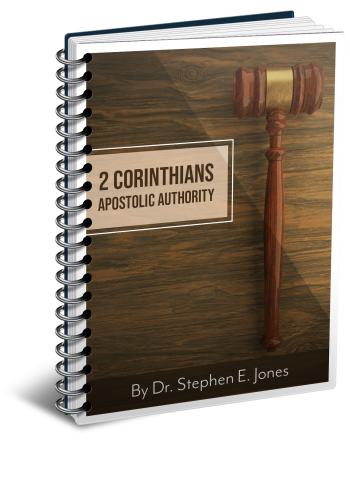Latest Posts
View the latest posts in an easy-to-read list format, with filtering options.

An in-depth commentary/study on the second book of Corinthians
Category - Bible Commentaries

In the fourth chapter of Second Corinthians, Paul builds upon the foundation of the New Covenant that he has just explained in the previous chapter. 2 Cor. 4:1 begins,
1 Therefore, since we have this ministry, as we received mercy, we do not lose heart.
The “ministry” in question is the ministry of the Spirit (2 Cor. 3:8), also called “the ministry of righteousness” (2 Cor. 3:9), which is based on the New Covenant. It is characterized by the removal of the Old Covenant veil, which hinders a person from seeing the full glory and goodness of God.
Paul attributes the apprehension of this ministry to the mercy of God, not to his own will or effort, for only God can open one’s eyes to see the truth. Only God can remove the fear of seeing God face to face. In fact, the flesh always fears the glory of God, but those who have been begotten by God are new creatures who have no such fear.
Paul continues in 2 Corinthians 4:2,
2 but we have renounced the things hidden because of shame, not walking in craftiness [panourgia] or adulterating the word of God, but by the manifestation of truth commending ourselves to every man’s conscience in the sight of God.
When Adam and Eve sinned, they became aware of their nakedness and were ashamed, sewing fig leaves to cover their shame. Paul alludes to this, saying that the believers had “renounced the things hidden because of shame.”
In other words, they had renounced the lawless way of life which had caused them previously to hide from God in fear and to sew fig leaves to try to justify themselves.
These believers had ceased to walk in craftiness, or subtilty. The Greek word is panourgia. In 2 Cor. 11:3, as we will see later, Paul used the same word to describe the serpent’s lie in the garden:
3 But I am afraid, lest as the serpent deceived Eve by his craftiness [panourgia], your minds should be led astray from the simplicity and purity of devotion to Christ.
Paul contrasts “craftiness” with “simplicity,” because craftiness attempts to use truth to deceive. It is not straightforward, nor is it simple truth. It adulterates the word of God by mixing truth with hooks and lies. The word of God, though it is complex, is simple and pure. Complexity is not the problem, nor is simplicity the solution if we desire to remain ignorant of the vast array of truth found in Scripture.
Truth always boils down to simple concepts, but there are many related truths we need to know in order to comprehend any single truth. For example, the simple truth of the New Covenant is that it is based upon the promise of God to men, rather than the promise of men to God.
Craftiness, however, has caused men to insert hooks into that simple truth by insisting that in the end, the New Covenant still depends upon the vows of men. By adding the vows of men to the simple truth of God’s vow and promise, they lose the simplicity of the gospel and turn the New Covenant into just another form of the Old Covenant.
Such people are deceived into thinking that the New Covenant is God’s promise to help our flesh fulfill its Old Covenant vow—by the power of the Spirit, they say! By such a gospel, designed by craft, the salvation of men remains in their own hands. Sonship is by the will of man, so believers continue to pray for enough “grace” to fulfill their vows in order to find assurance of salvation.
This counterfeit gospel keeps believers in bondage all of their lives. The word of God is thus adulterated, and men continue to wear Old Covenant veils over their eyes, while believing that they walk in the light of the New Covenant.
Paul continues in 2 Corinthians 4:3, 4,
3 And even if the gospel is veiled, it is veiled to those who are perishing, 4 in whose case the god of this world has blinded the minds of the unbelieving, that they might not see the light of the gospel of the glory of Christ, who is the image of God.
How can the gospel be veiled? The gospel, in this case, is pictured in the glory of God that Moses delivered to the people when he came off the Mount with his face glowing. The people were afraid, so Moses put a veil over his face, thus veiling the gospel from the people. The veil did not hinder Moses from seeing the people. The veil hindered the people from seeing the glory that was upon Moses’ face.
So also Paul wrote earlier in 2 Corinthians 3:15,
15 But to this day whenever Moses is read, a veil lies over THEIR heart.
This implies that Moses had a New Covenant perspective and understood the gospel. He knew the truth that the New Covenant was God’s promise to men and that God was therefore responsible and obligated to save all of mankind by the power of His own will. Only the people themselves were blinded to this truth, and for this reason the veil hid the glory of God from them.
Paul says that “the god of this world has blinded the minds of the unbelieving.” Some believe that this “god” is actually a reference to the Creator Himself, who is ultimately “the God of this world.” While it is certainly the case that the Creator owns that which He has created, and it is certain that He is sovereign, there are also false gods and false images which blind men’s eyes to the truth of the gospel. Because Paul does not explain himself, his intent remains unclear.
If Paul had the sovereignty of God in mind, then he was no doubt referencing the fact that God has blinded the whole world, as we read in Rom. 11:8 and 10,
8 just as it is written, “God gave them a spirit of stupor, eyes to see not and ears to hear not, down to this very day”…. 10 Let their eyes be darkened to see not, and bend their backs forever.”
Paul goes on to say in Romans 11:32,
32 For God has shut up all in disobedience that He might show mercy to all.
Here Paul was clearly speaking of the sovereignty of God, and one might say that the God of this world blinded the eyes of all men—not that they would be lost, but that God would be equally responsible to heal their blindness in the end. Was this what Paul had in mind when he spoke of “the God of this world” in 2 Cor. 4:4?
Most people (and translators) believe that Paul was referring to a false god, and they reference Jesus’ statement in John 12:31, where He says,
31 Now judgment is upon this world; now the ruler of this world will be cast out.
A “god” is literally defined as a ruler, or one who is in authority over others. Hence, God told Moses in Exodus 7:1, KJV, “See, I have made thee a god to Pharaoh, and Aaron thy brother shall be thy prophet.” God gave Moses spiritual authority over Pharaoh, so that Pharaoh was then required to obey the word of Moses. Hence, a god is one who exercises spiritual authority over another. Such a god may or may not rule according to the laws of the true God.
In Rom. 7:22, 23 Paul speaks of Sin as if he were a king or god ruling over his flesh, even as the true God ruled over his spirit, or “inner man.”
22 For I joyfully concur with the law of God in the inner man, 23 but I see a different law in the members of my body, waging war against the law of my [spiritual] mind, and making me a prisoner of the law of sin which is in my members.
In essence, the Sin god rules over flesh, commanding it to violate the law of God. The solution is to change one’s identity, identifying with the new creation man that has been begotten by God. That new spiritual man, “the inner man,” as Paul calls him, concurs with the law of God and does not obey the laws of the Sin god.
So Paul speaks of both the true God of this world as well as the god of the world of flesh. In 2 Cor. 4:4, Paul says that “the god of this world has blinded the minds of the unbelieving.” The most natural reading seems to portray a negative god, in contrast to the true God (Jesus Christ) who has shined the light to overcome this blindness. Yet we should understand also that no false god is sovereign but is subject to the Creator Himself and does only what he is permitted to do according to the overall divine plan.
Hence, whether Paul was speaking of “the god of this world” or “the God of this world,” the only real difference is whether the Creator was blinding the people directly or indirectly by using a lesser “god” to accomplish His plan.
Paul goes on to say in 2 Corinthians 4:5, 6,
5 For we do not preach ourselves but Christ Jesus as Lord, and ourselves as your bond-servants for Jesus’ sake. 6 For God, who said, “Light shall shine out of darkness,” is the One who has shone in our hearts to give the light of the knowledge of the glory of God in the face of Christ.
Here Paul tells us that the Light is Jesus Christ. This is the light that was spoken and released into the universe on the first day of creation in Gen. 1:3. It is the same light that was seen in the face of Moses in Exodus 34:35.
It is the light of Christ that was veiled to the fearful ones. And this is the same light that shines in the hearts of every true believer who has been begotten by God.
Hence, we do not preach ourselves—that is, our flesh, the old man. Instead, we preach Christ out of our new creation identity. We do not present ourselves, our flesh, or our own will, as being the light. These are, in fact, part of the darkness.
We do not preach the Old Covenant but the New. Nonetheless, there are many who have Old Covenant veils upon their faces. These cannot see the light of Christ in us, nor can they accept the New Covenant promise that is the heart of the gospel.